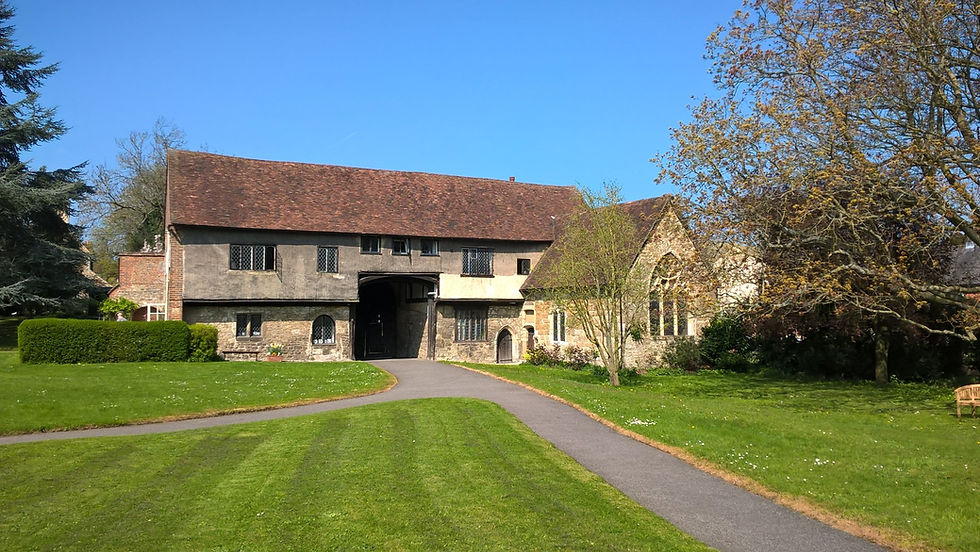Our story of old age
- Debbie Thrower

- Sep 24, 2019
- 3 min read

'How can we learn about our own ageing and others? One way is to listen to how we narrate the story of age as we ask ourselves what might make for a good old age.' This is how Canon James Woodward introduced the day he led in Kent to encourage us to listen carefully to the nature of telling one's story; the narration of the experience of ageing given a whole range of different stories.
Take three writers
There was an opportunity for us each to reflect on the nature and experience of our ageing, especially as seen through the lens of three different writers, May Sarton, John Mortimer and Diana Athill.
The day at the St Benedict's Centre, West Malling, organised by Anna Chaplaincy Lead in Kent, Julia Burton-Jones, and attended by a number of Anna Chaplains and Anna Friends as well as others, was billed as being of benefit to both those who would like to reflect on their own ageing and those who are in the position of supporting older people in formal or informal care. So it proved to be.
James Woodward is the author of Valuing Age: Pastoral ministry with older people (SPCK, 2008) and Principal of Sarum College, Salisbury. His theme, ‘What is our story of old age? Listening and learning from the experience of ageing', was a rich one for examining the variety of ways we approach our old age.
For American writer May Sarton, in Endgame: A journal of the 79th year, for example, there was a compulsion to note down what she was thinking and feeling as it happened: 'I need to sum up, and in a way discover, what is going on around me and inside me… Life would seem empty and without purpose without it.'
For novelist and lawyer, John Mortimer, in Where There's a Will , the challenges of old age are mitigated by maintaining a lively curiosity and listening to others: 'The world’s full of talkers, with not nearly enough listeners. This leads to many lonely people wandering from room to room in their quiet empty houses asking and answering questions to and from themselves. Too many of us rabbit on about ourselves, repeating what we know already and fail to discover anything about the curious lives and the unopened histories of the passenger in the corner-seat, the sad eyed, lonely drinker at the end of the bar or the apparently ill-sorted couples in the holiday hotel.'
Woodward chose also to focus on the thoughts of publisher and writer Diana Athill, in particular her attitude towards her own mortality: 'Athill is captivating because of her fearlessness of death, her sense that death is another adventure in her adventurous life. She reminds us that loving life may well mean accepting death as a part of it. The two are not opposites. They only seem to be.'
She notes: 'What dies is not a life’s value, but the worn-out (or damaged) container of the self, together with the self’s awareness of itself… The difference between being and non-being is both so abrupt and so vast that it remains shocking even though it happens to every living thing that is, was or ever will be.'

Woodward voiced criticism of the church for becoming more and more preoccupied with itself and 'less relational, less pastoral'.
'We've lost the art of listening to one another's stories. Let's continue to recover our enthusiasm for listening to other people's stories,' he said, 'and what we can discover of God in those stories.'
For details of the courses running at Sarum College, Salisbury, go to sarum.ac.uk/learning/course-brochure.









コメント